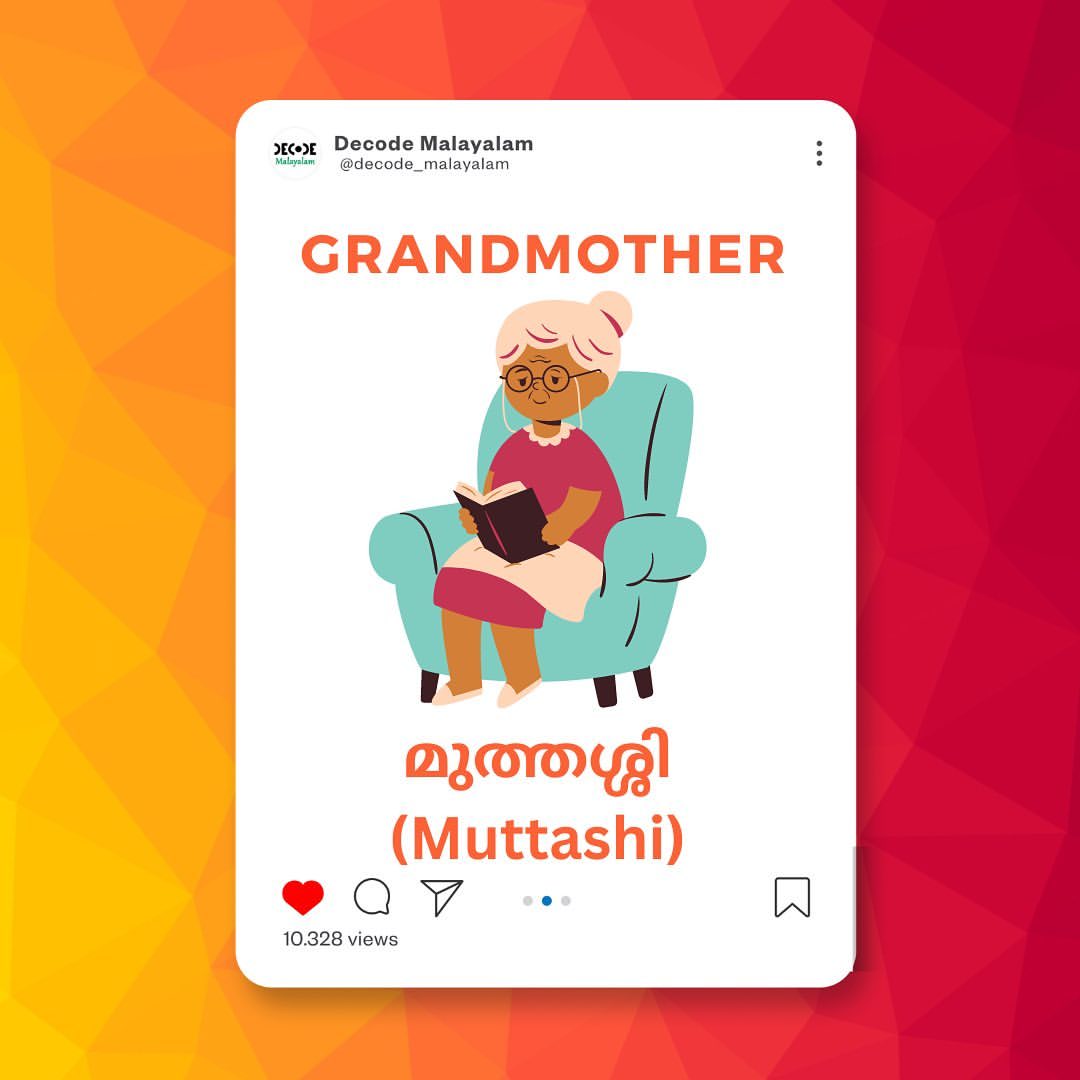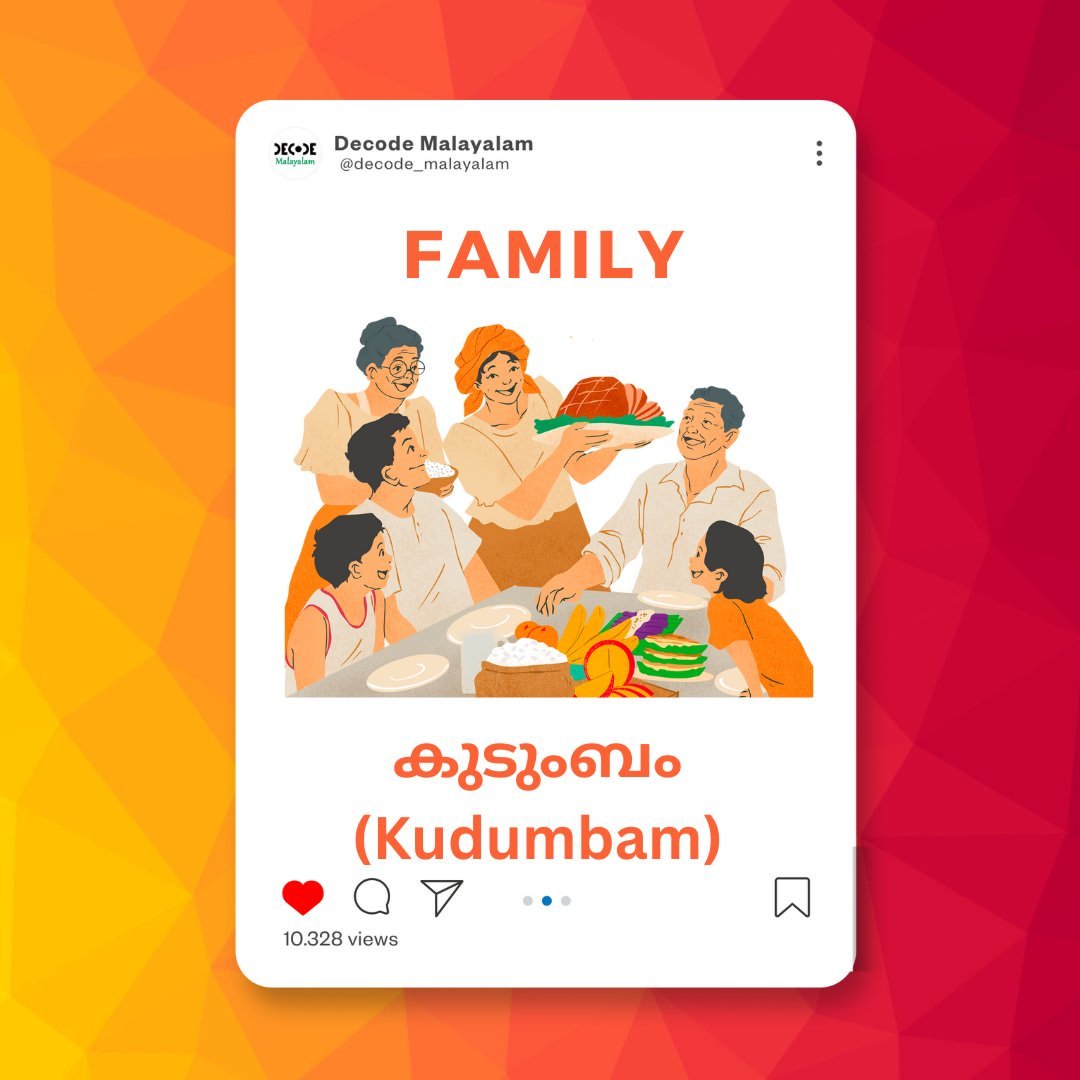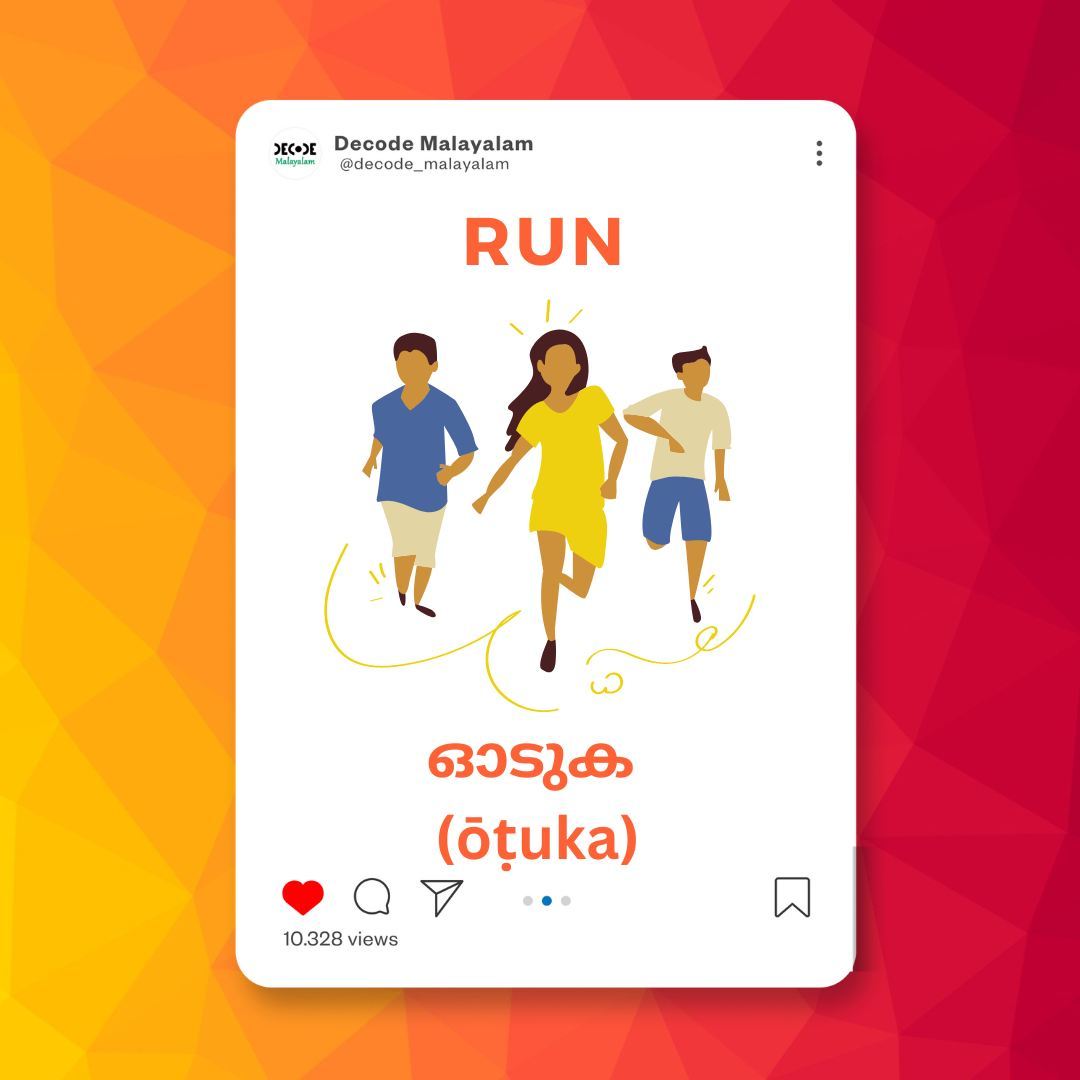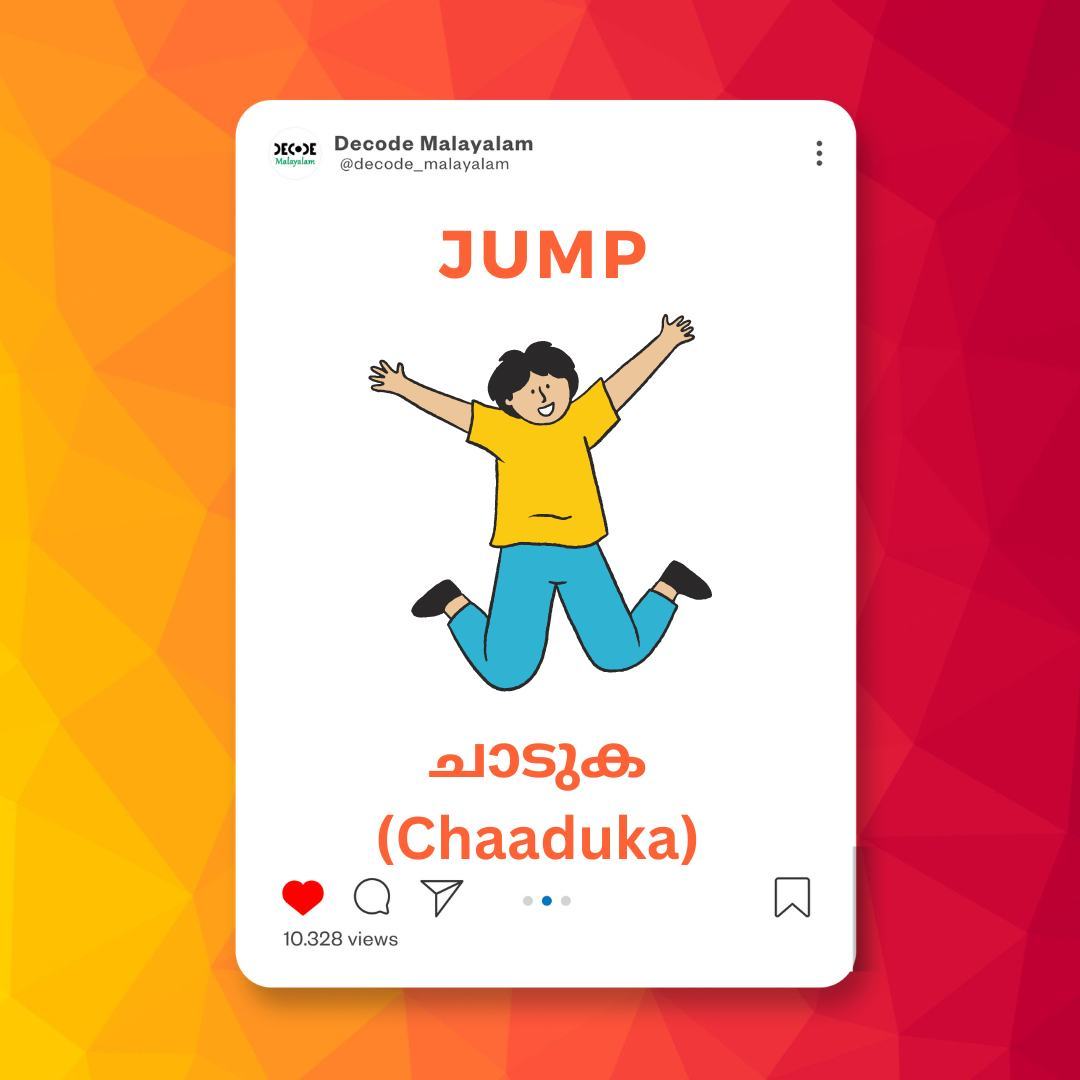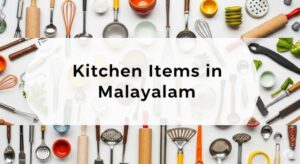Learning a new language can be a fascinating journey, and understanding food items is a crucial part of it. Whether you are planning a trip to Kerala, have Malayalam-speaking friends, or are simply a language enthusiast, knowing food items in Malayalam can greatly enhance your experience. This article will delve into the essential vocabulary of food items in Malayalam, practical tips for learning Malayalam online, and the benefits of mastering this beautiful language.
Why Learn Food Items in Malayalam?
Understanding food items in Malayalam can significantly enhance your cultural experience and interaction with native speakers. Malayalam, spoken by over 38 million people, is the official language of Kerala, a state in southern India known for its rich culture and delicious cuisine. By learning food vocabulary, you can:
Enjoy local cuisine
Knowing the names of dishes and ingredients will help you better understand and appreciate Kerala’s diverse culinary offerings.
Communicate effectively
Whether in restaurants, markets, or with local hosts, being able to name food items can facilitate smoother and more meaningful interactions.
Immerse in the culture
Food is a significant part of any culture, and understanding the local cuisine can provide deeper insights into Malayalam traditions and lifestyle.
Essential Food Items in Malayalam
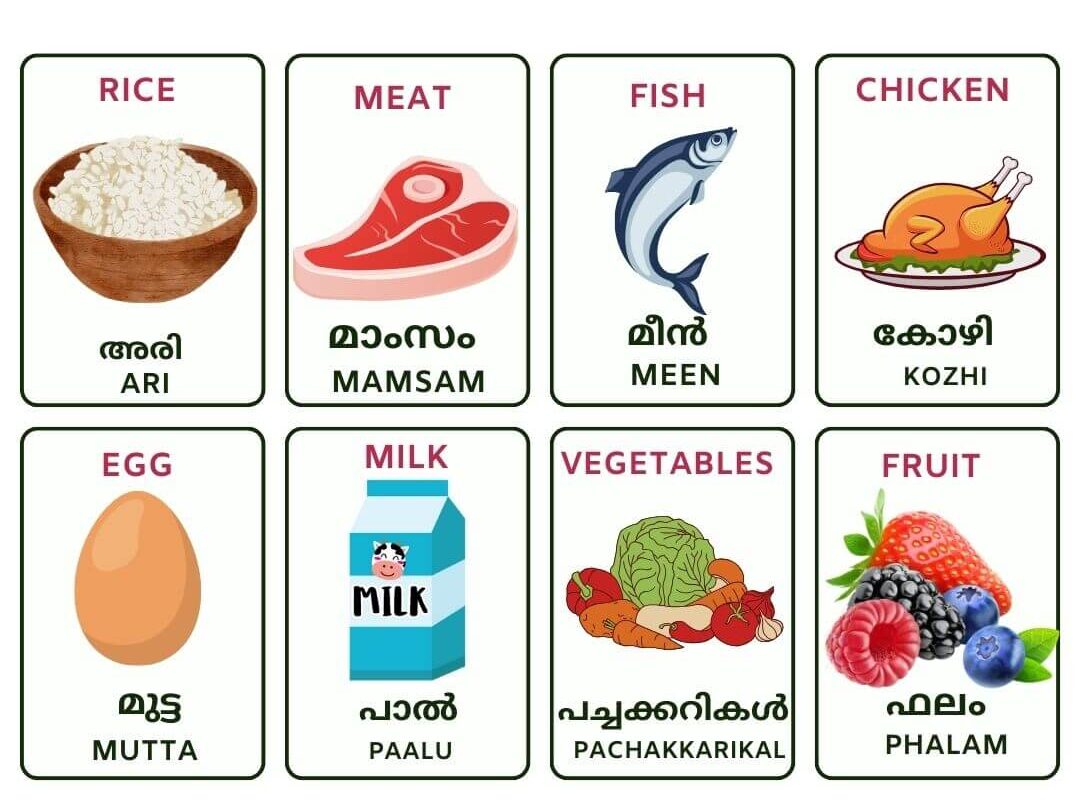
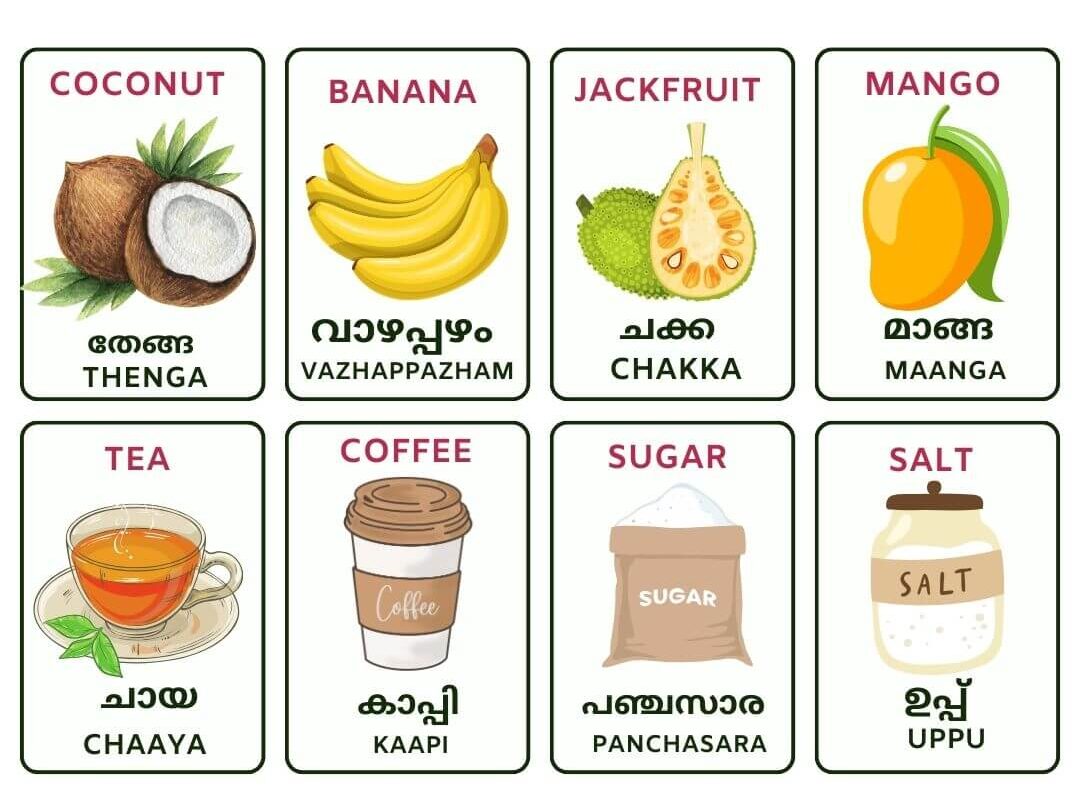

List Food Items In Malayalam
| English | Malayalam |
|---|---|
| Rice | അരി (Ari) |
| Meat | മാംസം (Maamsam) |
| Fish | മീൻ (Meen) |
| Chicken | കോഴി (Kozhi) |
| Egg | മുട്ട (Mutta) |
| Milk | പാൽ (Paalu) |
| Vegetables | പച്ചക്കറികൾ (Pachakkarikal) |
| Fruit | ഫലം (Phalam) |
| Coconut | തേങ്ങ (Thenga) |
| Banana | വാഴപ്പഴം (Vazhappazham) |
| Jackfruit | ചക്ക (Chakka) |
| Mango | മാങ്ങ (Maanga) |
| Tea | ചായ (Chaaya) |
| Coffee | കാപ്പി (Kaapi) |
| Sugar | പഞ്ചസാര (Panchasara) |
| Salt | ഉപ്പ് (Uppu) |
| Butter | വെണ്ണ (Vennai) |
| Dhal | പരിപ്പ് (Parippu) |
| Spices | മസാല (Masala) |
| Honey | തേൻ (Then) |
Tips for Learning Food Items in Malayalam
1. Use Flashcards
Flashcards are an effective tool for memorizing vocabulary. Create flashcards with the Malayalam word on one side and the English translation on the other. Regularly review these flashcards to reinforce your memory.
2. Label Your Kitchen
Label items in your kitchen with their Malayalam names. For example, place a label with “അരി” on your rice container. This constant visual reminder will help you associate the words with their corresponding items.
3. Practice with Native Speakers
Engaging with native Malayalam speakers can significantly improve your vocabulary and pronunciation. Join online language exchange communities or find a language partner who can help you practice.
4. Watch Malayalam Cooking Shows
Malayalam cooking shows and food channels can be a fun and educational way to learn food-related vocabulary. Pay attention to the names of ingredients and dishes as they are mentioned.
5. Use Language Learning Apps
Apps like Duolingo, Memrise, and Anki offer Malayalam courses that can help you learn food items and other essential vocabulary. These apps often include interactive exercises and quizzes to test your knowledge
Practical Tips for Getting Started with Learning Malayalam Online
1. Enroll in Online Courses
Platforms like Decode Malayalam offer structured courses that can guide you from beginner to advanced levels. These courses often include lessons on food items and other practical vocabulary.
2. Join Online Communities
There are many online communities and forums where you can connect with other Malayalam learners. Platforms like Reddit, Facebook, and language learning forums provide a space to share resources, ask questions, and practice with others.
3. Watch Malayalam Media
Watching Malayalam movies, TV shows, and YouTube videos can immerse you in the language. Try to watch with subtitles to understand the context and pick up new words.
4. Read Malayalam Books and Articles
Start with children’s books or simple articles in Malayalam. As your comprehension improves, gradually move on to more complex texts. Reading helps you see the vocabulary in context, which aids in retention.
5. Listen to Malayalam Music and Podcasts
Listening to Malayalam music and podcasts can improve your listening skills and introduce you to the natural rhythm and intonation of the language. Try to follow along with the lyrics or transcripts.
Benefits of Learning Malayalam
Learning Malayalam opens up a world of opportunities and enriches your personal and professional life. Here are some benefits:
1. Cultural Appreciation
By learning Malayalam, you gain a deeper understanding of Kerala’s rich cultural heritage, traditions, and festivals. This cultural insight can enhance your travel experiences and personal connections with Malayalam-speaking individuals.
2. Career Opportunities
With Kerala’s growing importance in tourism and trade, proficiency in Malayalam can be a valuable asset in various fields such as hospitality, translation, and international business.
3. Cognitive Benefits
Learning a new language improves cognitive functions, including memory, problem-solving skills, and multitasking abilities. It also helps delay the onset of age-related cognitive decline.
4. Enhanced Communication
Knowing Malayalam allows you to communicate more effectively with native speakers, fostering better relationships and understanding. This can be particularly beneficial if you have Malayalam-speaking friends, family members, or colleagues.
5. Personal Fulfillment
Achieving proficiency in a new language is a rewarding experience. It boosts your confidence, broadens your perspectives, and provides a sense of accomplishment.
Conclusion
Embarking on the journey to learn food items in Malayalam is a rewarding endeavor that opens doors to cultural understanding and personal growth. By following practical tips and utilizing online resources, you can steadily improve your vocabulary and language skills. Enroll in a course on Decode Malayalam today to take your learning to the next level and immerse yourself in the vibrant world of Malayalam. Start your journey now and experience the joy of connecting with a rich linguistic heritage.
Read More:


